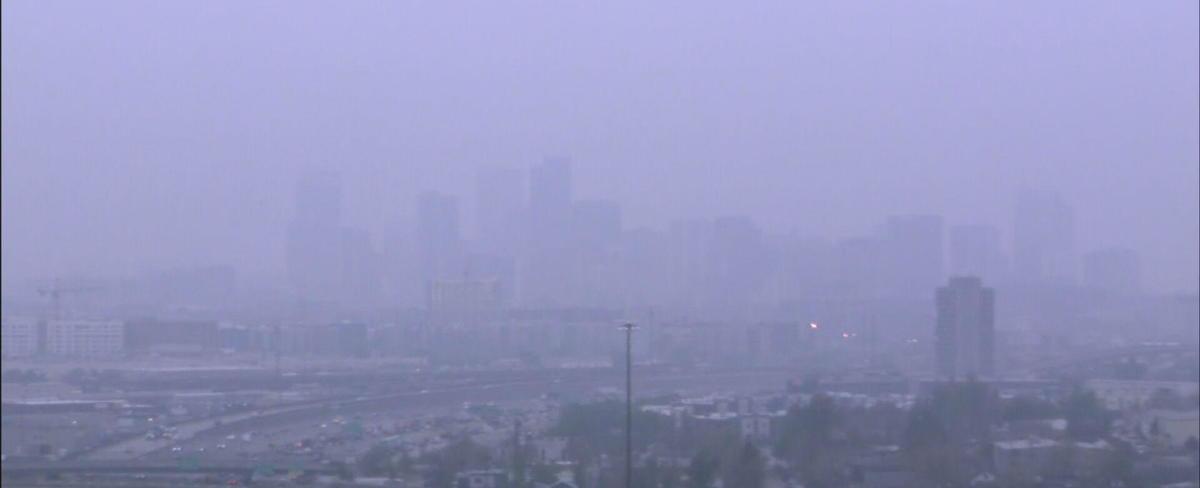Smoke from Canadian wildfires moves into the Front Range

The smoke from Canadian wildfires is causing air quality concerns in the Front Range region. The fires, which have been burning for weeks, have already scorched more than 800,000 acres of land in Canada. The smoke has now made its way into the United States, affecting the air quality in Colorado and other states in the region.
The state of Colorado has issued an air quality health advisory due to the smoke. The advisory warns that people who are sensitive to air pollution, including those with respiratory issues, should limit their time outdoors. It’s also recommended that people keep their windows closed and use air purifiers to help reduce exposure to the smoke.
This isn’t the first time that wildfires in Canada have affected the air quality in the United States. In recent years, smoke from Canadian wildfires has drifted over the border, causing similar health concerns. Experts say that as climate change worsens, wildfires will become more frequent and intense, which means that the air quality in many parts of the world will be at risk.
Recently, wildfires have raged in other parts of the world, including Australia and Siberia. These fires have been fueled in part by rising temperatures and drought conditions. The effects of these fires go beyond just the immediate danger to people and wildlife. They also contribute to air pollution and greenhouse gas emissions, which can impact the environment for years to come.
The smoke from Canadian wildfires is just one example of how climate change is affecting our daily lives. It’s a reminder of the urgent need to take action and reduce our carbon footprint. As individuals, we can do our part by reducing our energy consumption, supporting clean energy initiatives and protecting our forests and wildlife.
In summary, the smoke from Canadian wildfires is affecting air quality in the Front Range region and is a reminder of the impact of climate change. It’s important to stay informed and take action to reduce our carbon footprint in order to protect our environment and safeguard our health.
Quick Links

